
Mon-Fri 9am-5pm
Talk to our friendly electric car leasing experts now: 01942 910 001This website uses cookies to ensure you get the best experience. Learn more
The Kia Niro EV - the perfect electric business car?

What is the perfect electric car for your business?
The continued growth of EVs is outperforming the expectations of even the most positive and ambitious zero-emission fans. And at the heart of the success has been the company car and fleet markets who have really driven the electrification project.
With the UK Government hopeful of being a zero-emission country by 2030 / 2035, this is welcome news for the Transport department. With an array of new cars available for purchase / lease, together with more charge point infrastructure, Clean Air Zones, Low Emission Zones and a favourable tax position, there are many reasons to move into battery technology.
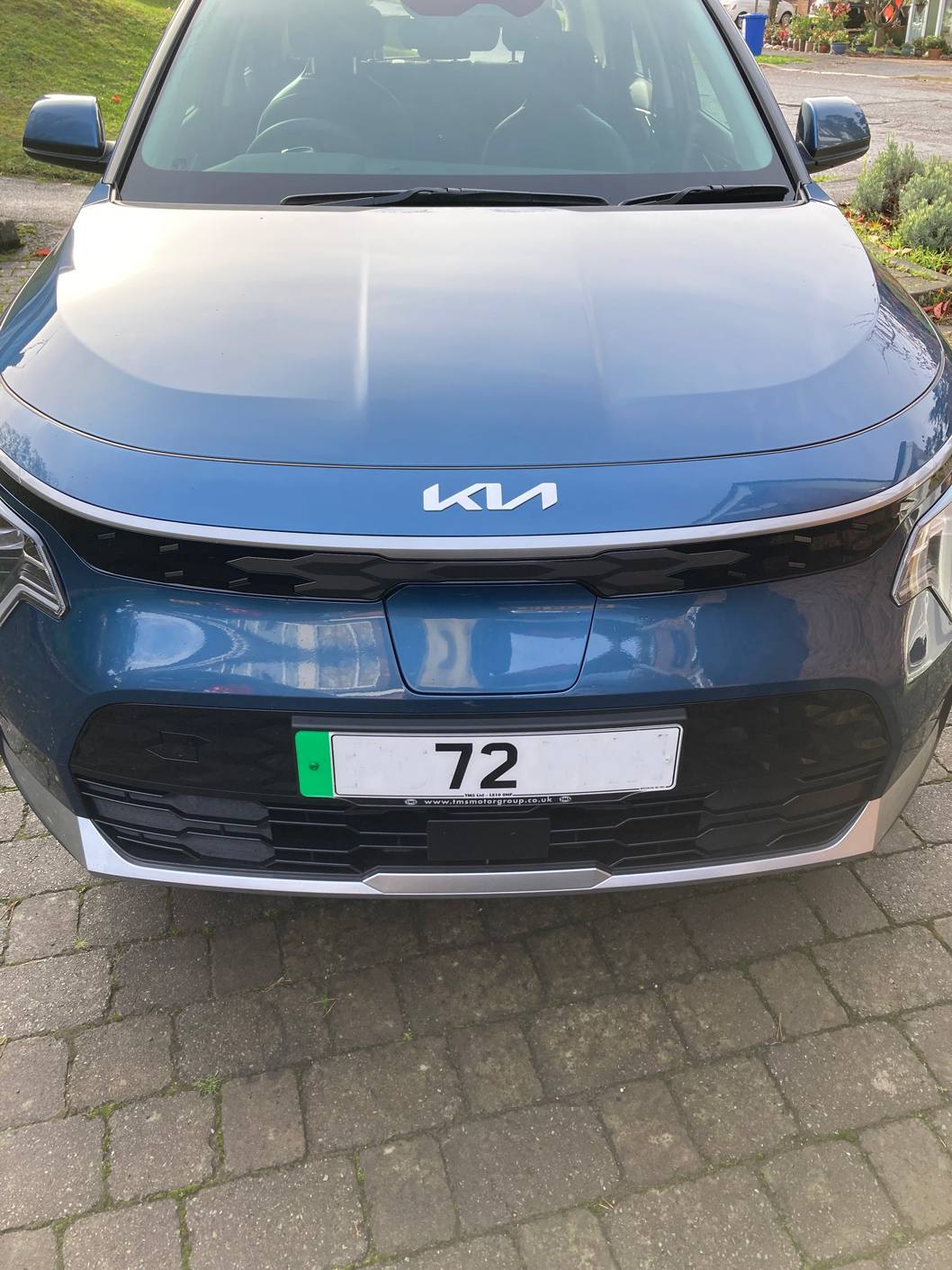
But that isn’t to say there are cons or drawbacks with electric cars; there are elements associated with this product which do need consideration and these may educate you, or the driver, not to go purely electric.
Are electric cars free to company car drivers?
This is an often quoted benefit but is not always refined and explained properly. In the UK, if you drive a car which is supplied to you by your employer, there will be a corresponding tax liability attributed.
The way in which business cars are taxed is to take the P11d value (which for the Kia Niro EV 2 here is £36,740) and apply the relevant BiK (Benefit in Kind) percentage, which is currently 2%. If you multiply the P11d by the 2% shown, this provides you with an overall BiK of £735. As each driver will have an income tax rate, generally 20% or 40%, you then apply your relevant Income Tax to this amount - in this instance let’s say you are 20% tax payer, it would be 20% x £735 = £147 (annually).
A 40% tax payer would be liable to annual tax of £294. Breaking this down into months, this only equates to £15 - £25 per month in car tax, which represents a considerable saving compared to a combustion engine. So it isn’t correct to say an EV is FREE but it is correct to say they are incredibly tax efficient for the individual driver.
Particularly since the significant change to company car tax was implemented by HMRC in 2020 by changing zero-emission vehicles from a 16% BiK to 0% (with a phased increase afterwards). In their recent Autumn Budget, the Government confirmed that the 2% will be in place until at least 2025, with only a nominal 1% increase to take place yearly thereafter - see this article from HMRC
“Company Car Tax (CCT) Rates - The government is setting rates for Company Car Tax until April 2028 to provide long term certainty for taxpayers and industry in Autumn Finance Bill 2022. Rates will continue to incentivise the take up of electric vehicles:
appropriate percentages for electric and ultra-low emission cars emitting less than 75g of CO2 per kilometre will increase by 1 percentage point in 2025-26; a further 1% in 2026-27 and a further 1% in 2027-28 up to a maximum appropriate percentage of 5% for electric cars and 21% for ultra-low emission cars
rates for all other vehicles bands will be increased by 1 percentage point for 2025-26 up to a maximum appropriate percentage of 37% and will then be fixed in 2026-27 and 2027-28”
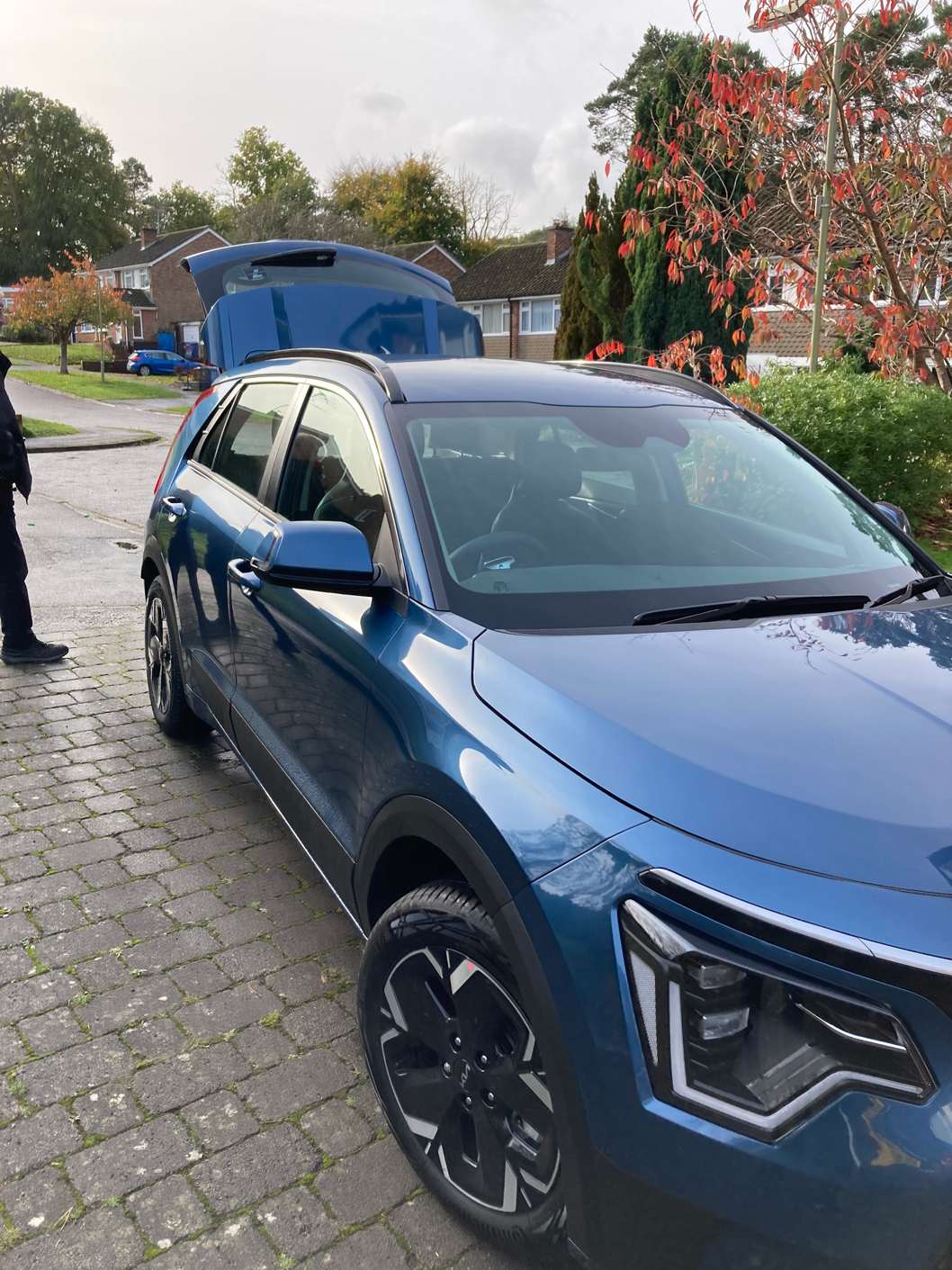
In stark contrast the high emission combustion cars, i.e. with 170g/km of emissions and over, will be subject to 37% BiK. For cars with expensive P11d values this equates to company car tax liabilities which will literally be hundreds to thousands of pounds per month.
And for the company leasing the vehicle, there are corresponding benefits. When you utilise contract hire (lease rental) the car must not emit more than 50g/km of CO2, otherwise only 85% of the rentals are allowable against corporation tax. With an electric car emitting 0g/km of tailpipe emissions, this does mean that 100% of the monthly rentals are allowable against corporation tax.
This is in addition to 50% of reclaimable Vat on the finance rentals and 100% of the Vat on the maintenance elements. Do consider that if your vehicle emits more than 50g/km of CO2 the 85% restriction does apply to the Vat position too.
But are companies buying electric cars as opposed to leasing them?
The perfect procurement or finance product doesn’t exist before we go any further. With any company / fleet looking to transition to EVs, the methods of procurement will rely on accounting principles, cash-flow, appetites to risk and their company car policy / usage.
With contract hire, and other rental products, the business is undertaking a usership agreement on the EV and will use the asset for a predetermined 2/3/4 years before handing it back at contract cessation. The price is based on the car (and specification) plus the term, annual mileage, initial rental and maintenance provision undertaken.
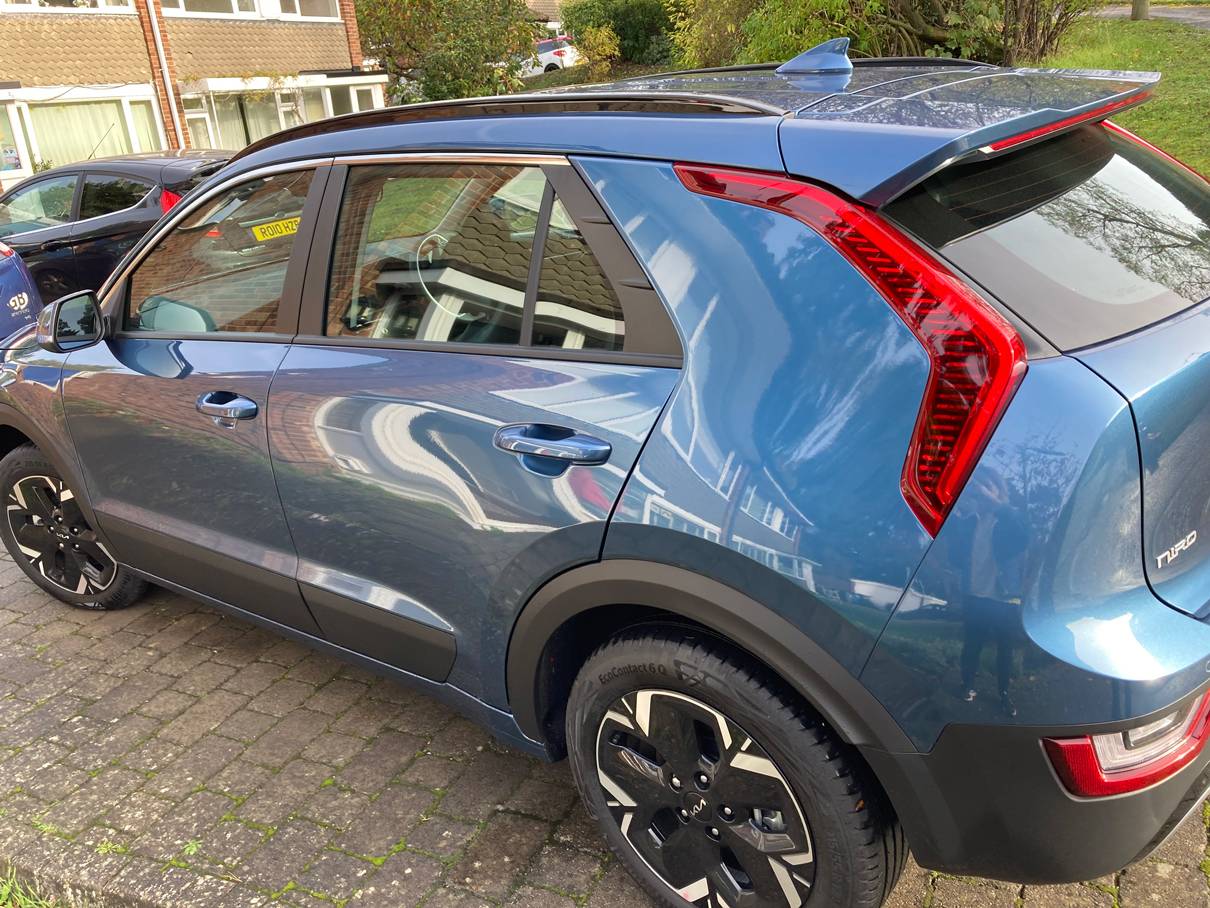
The key benefit of leasing your EV is that it is more cash-flow friendly and there are no ownership obligations, so if RVs on the zero-emission market change, the company is not subject to risk. Obviously if you do enjoy the car, there is sometimes no ability to extend or buy it at contract end, so it is not always a preferable position. Plus the vehicle will be inspected for mileage and condition with potential charges to be applied.
With car purchase / buying, the accounting treatment is a little different. For cars, capital allowances are utilised and like all tax, the CO2 of the vehicle is key. With capital allowances, a company can reclaim 100% of the cost on any new zero-emission car purchase and the claim is always based on the actual expenditure as opposed to the list price (in case you receive any discount).
For cars which do have emissions, the 1 - 50g/km can reclaim 18% in the Main Rate Pool or just 6% for the 51+g/km Special Rate Pool. For non-EVs it can take serval years to obtain full relief, which is why some companies will utilise contract hire instead. If you are a particularly cash-rich business, the use of your own funds can represent a saving compared to interest products like hire purchase or even the underlying cost of funds with leasing.
A Hire Purchase on an EV does allow you to utilise a 100% tax relief but there will be charges and interest added to your monthly payments. With ownership the company has ultimate control of the vehicle and can buy / sell / swap the vehicle as much as it wants. There are no finance companies to answer to. If the EV has a robust RV, then any finance benefit is passed straight to the company.
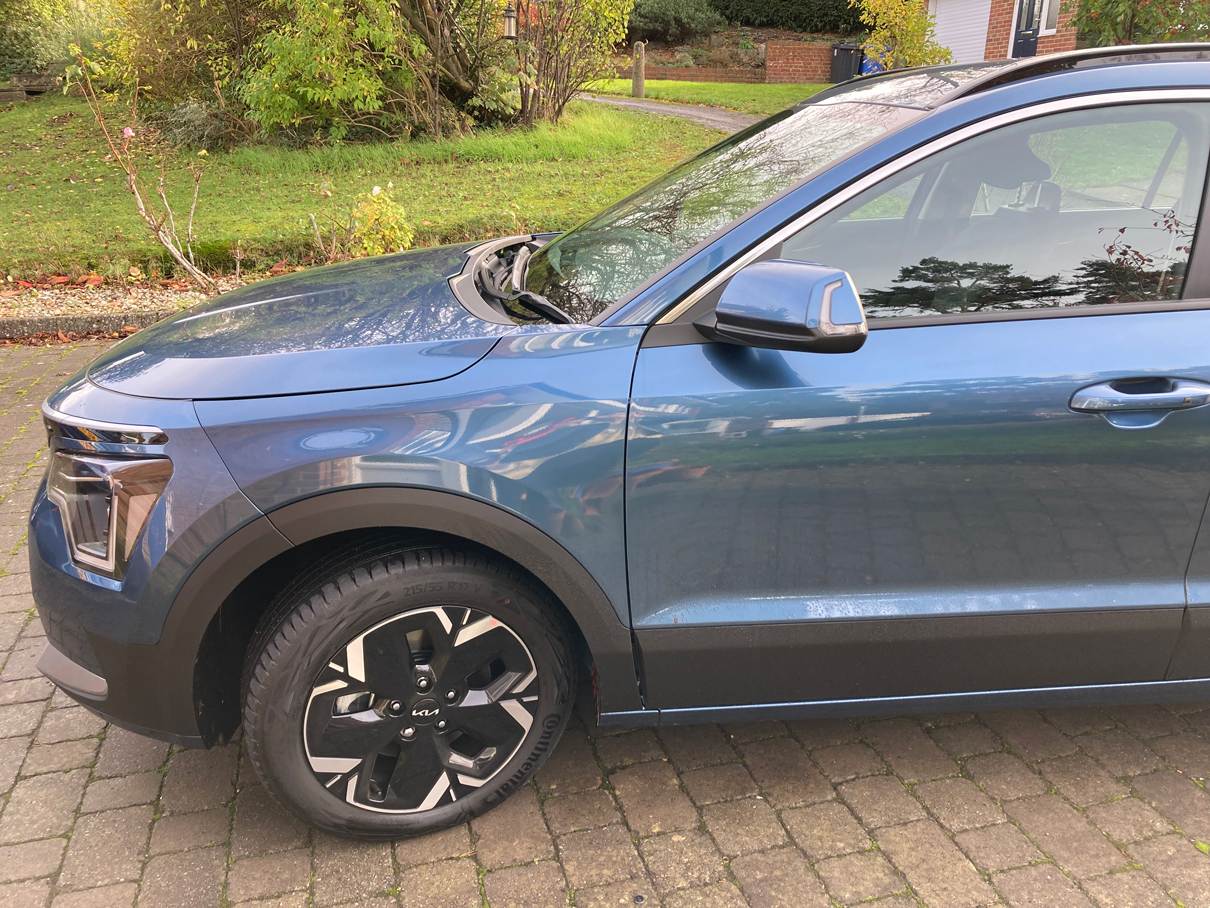
So there really isn’t a perfect way to own or use an EV, this will very much be based on the financial and accounting circumstances of the company. And headline rentals, or deals / offers, should not be the only incentive. Ensure you carry out due diligence on the EV - range, charging speeds, charge point requirements, performance - before committing to buying or leasing it.
The Kia Niro EV - the perfect company car?
But the great news for many company car users is that there are now good value options, like the Kia Niro EV shown here, for them to enjoy. A small critique of the EV revolution is that many of the products have been expensive and more attune to the luxury and sports car performance segment of the UK’s automotive industry.
Cheap, or affordable, EVs were not an immediate priority for many manufacturers. But for many business car schemes, there are P11d limits on the accessible vehicle and for many drivers this either meant not being able to access a BEV or being able to only access the cheaper ones with small batteries and nominal range.
The Niro EV, which is a facelift and improvement on the previous e-Niro, really is one of the best affordable EVs to lease in 2022 / 2023. At a more moderate £36,000, or lease rentals of around £275 to £400 per month, this is not obstructive on price.
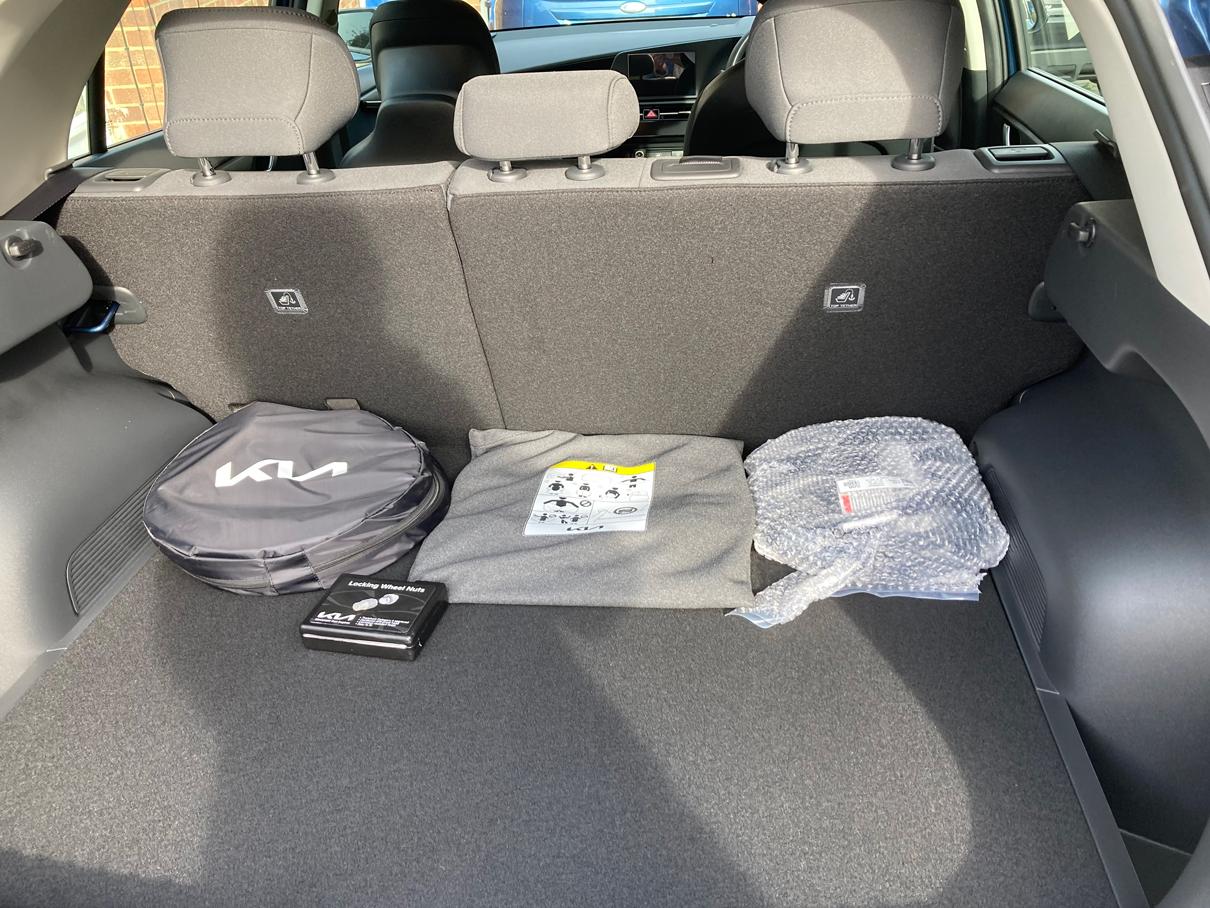
The 64.8 kWh lithium-ion battery will deliver around 200 miles of range in colder weather (on a full charge) with warmer weather improving this to 270 miles. The 150 kW, or 201hp, translates to 7.8 second 0 - 62 times and 104 mph top speeds. In terms of charging times, the 11 kW AC allows 0 - 100% in 7 hours with the 80 kW DC effecting 10 - 80% in 40 minutes. The only snag is that Kia didn’t offer more robust DC fastcharge capability; we would have expected at least 120 - 150 kW DC.
In terms of a vehicle fuel equivalent, the Niro EV offers 147 mpg. And with a family-friendly 475L cargo volume plus 750 kg (braked) towing capacity, this is one of the leading electric SUVs on a company car scheme for 2022 / 2023.
Kia NIRO EV ESTATE 150kW 2 64kWh 5dr Auto (Pure Electric Vehicle)
In terms of the car shown, the Kia NIRO EV ESTATE 150kW 2 64kWh 5dr Auto (Pure Electric Vehicle), this is based on the following configuration;
- Mineral Blue Premium paint
- Cloth - Black
- 17" alloy wheels
- Type 2 charging cable (Suitable for Public charging and home wallbox charger – Fast charging)
What is the range of the Kia Niro EV?
.jpg)
What is the battery capacity and charging speed on the Kia Niro EV?
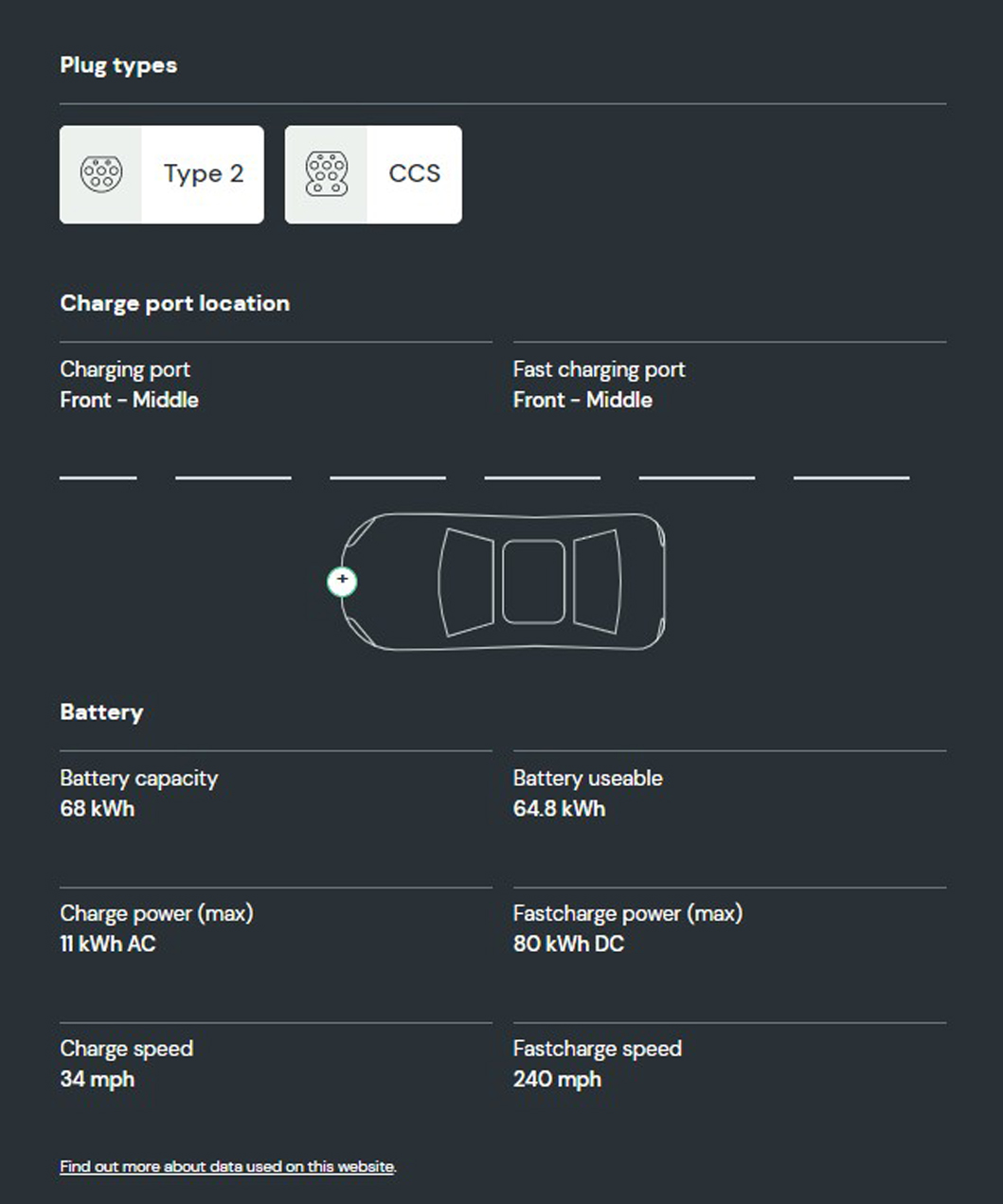
How long does it take to charge the Kia Niro EV?
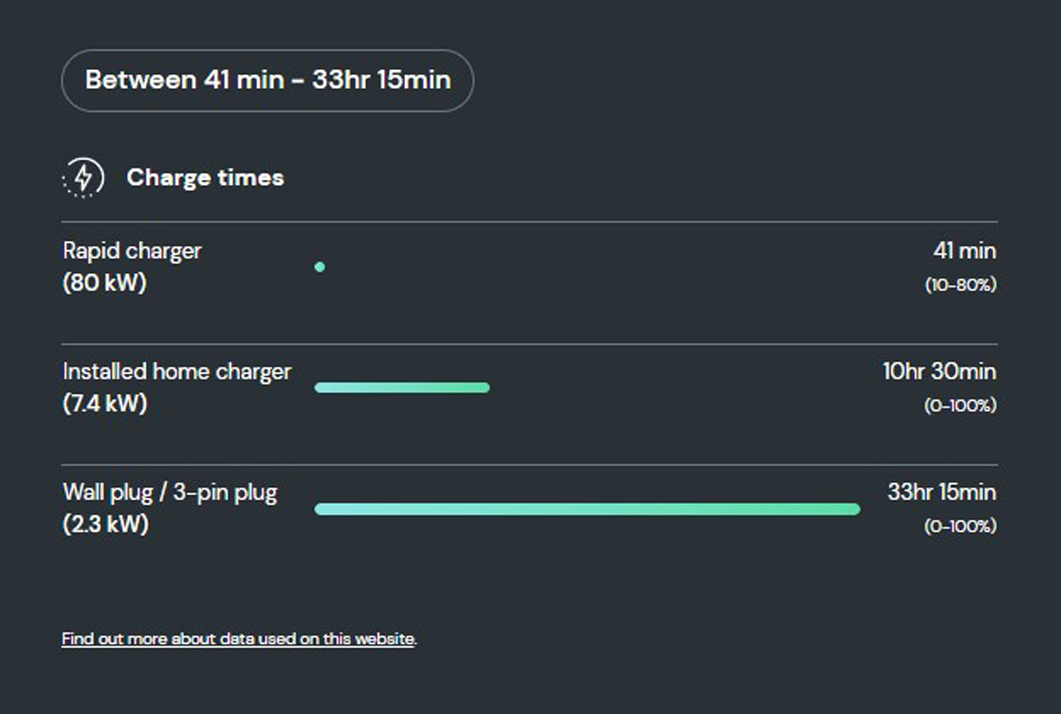
Where can I charge the Kia Niro EV?
.jpg)
What is the company car tax on the Kia Niro EV?
.jpg)
e-car lease work alongside these select finance companies:





e-car lease have a partnership and affiliation with:



Register & get new deals weekly
 Exclusive offers
Exclusive offers
 Electric-only deals
Electric-only deals
 Never miss out
Never miss out

Talk to one of our experts
01942 910 001 Email usLeasing


© Copyright 2025 e-car lease. All rights reserved. e-car lease is a trading name of CarLease (UK) Ltd, e-car lease is a credit broker and not a lender. We are authorised and regulated by the Financial Conduct Authority. Registered No: 706617. BVRLA Membership No. 1471. Registered in England & Wales with Company Number: 09312506 | Data Protection No: ZA088399 | VAT No: 200422089 | Registered Office: Kings Business Centre, Warrington Road, Leigh, Greater Manchester, WN7 3XG
Made by morphsites®












